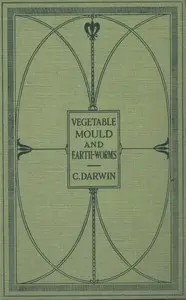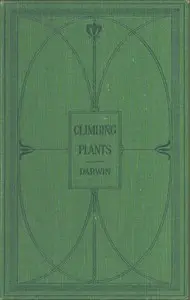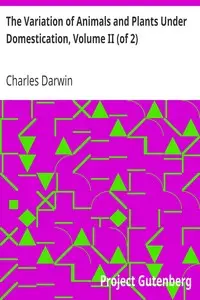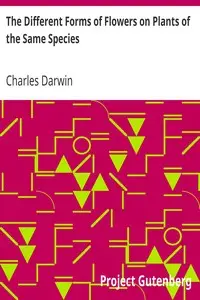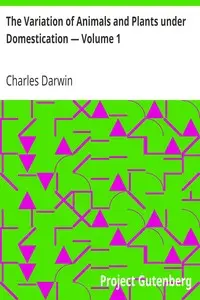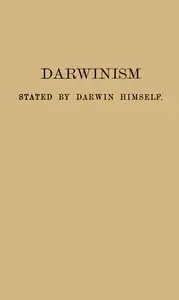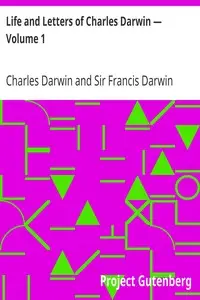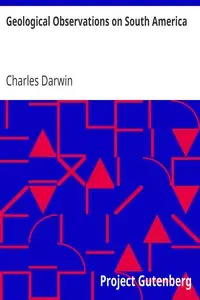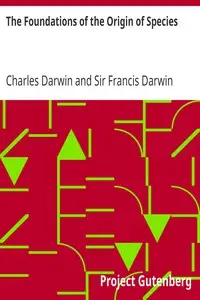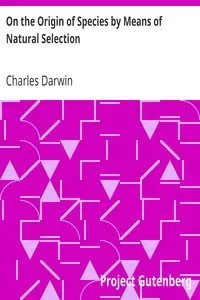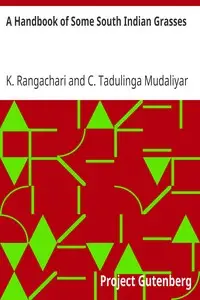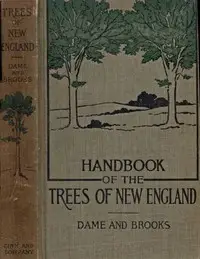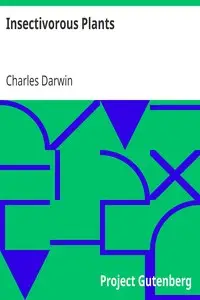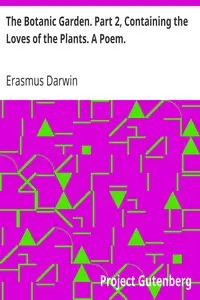"The Effects of Cross & Self-Fertilisation in the Vegetable Kingdom" by Charles Darwin is a scientific exploration from the late 1800s. It studies how plants reproduce, whether by cross-fertilisation or self-fertilisation. The book shares research that shows the effects on how plants grow, if they are healthy, and how their offspring turn out. Darwin’s goal is to offer proof of how these ways of making baby plants affect how strong they are. The start of the book introduces the experiments, talking about why cross-fertilisation makes plants stronger. Darwin also talks about the tools and ways of doing experiments, showing the good things that come from different ways of fertilisation. He points out how the way flowers are made and when they open are important for cross-fertilisation, giving examples of plants that can only do this. Darwin puts forward his idea that cross-fertilisation makes stronger offspring than self-fertilisation, which leads to lots of facts and study in the next chapters.
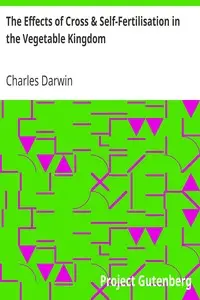
The Effects of Cross & Self-Fertilisation in the Vegetable Kingdom
By Charles Darwin
Witness groundbreaking experiments that unveil which reproductive method empowers plants to thrive and adapt, resulting in more robust future generations.
Summary
About the AuthorCharles Robert Darwin was an English naturalist, geologist, and biologist, widely known for his contributions to evolutionary biology. His proposition that all species of life have descended from a common ancestor is now generally accepted and considered a fundamental scientific concept. In a joint publication with Alfred Russel Wallace, he introduced his scientific theory that this branching pattern of evolution resulted from a process he called natural selection, in which the struggle for existence has a similar effect to the artificial selection involved in selective breeding. Darwin has been described as one of the most influential figures in human history and was honoured by burial in Westminster Abbey.
Charles Robert Darwin was an English naturalist, geologist, and biologist, widely known for his contributions to evolutionary biology. His proposition that all species of life have descended from a common ancestor is now generally accepted and considered a fundamental scientific concept. In a joint publication with Alfred Russel Wallace, he introduced his scientific theory that this branching pattern of evolution resulted from a process he called natural selection, in which the struggle for existence has a similar effect to the artificial selection involved in selective breeding. Darwin has been described as one of the most influential figures in human history and was honoured by burial in Westminster Abbey.

